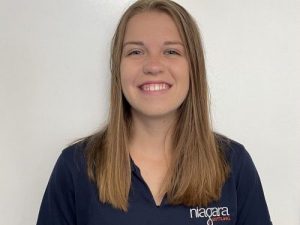The University of Connecticut might be a favored institution of higher education in the state of Connecticut, but with the uniqueness of a program like Management and Engineering for Manufacturing (MEM), it draws students well beyond state borders. One example of this is Jonathan Rucinski, UConn Senior and MEM major.
 The Buffalo, New York resident said he came to UConn because of the MEM program and because there really isn’t anything quite like it anywhere else. While there are a few similar programs at one or two other universities, no other program balances both business and engineering quite like MEM.
The Buffalo, New York resident said he came to UConn because of the MEM program and because there really isn’t anything quite like it anywhere else. While there are a few similar programs at one or two other universities, no other program balances both business and engineering quite like MEM.
Rucinski reflects that when he was in high school, his STEM background had him leaning toward an Engineering degree, but felt that Business had a strong appeal for him in spite of that. He found himself wondering whether he should focus on business or engineering in his college search process.
“I wanted to lean on engineering because I had mainly done science and STEM, but business interested me, so I did a search for programs that were engineering and incorporated some business,” Rucinski said. “They were mainly 4+1 programs, but I really wanted something I could do in 4 years.”
He doesn’t recall if he found the MEM program or whether it was his mom, but either way, he was immediately interested. “We came for a visit and it was exactly what I was looking for.”
“I thought it would be good to stand out from the pack and diversify myself for my resume and as an individual with a degree that was both business and engineering,” he continued. “With MEM you get the engineering skills, but can talk business and so you get to be a liaison to go between both sides in industry.”
He explained, “The other program was a little more involved on the engineering side and a little weaker on the business side. I wasn’t sure I wanted to lean that far into engineering. Then I visited and spoke to Professor Tang, and he told me about the jobs MEM students look for and how they go both ways, more into business or more into engineering.”
When he saw the benefits and the versatility of an MEM degree, he was sold.
Did anything surprise you?
Now that he is a senior in MEM, he says the one surprise is how his interests have evolved so much. “I didn’t realize I had such a passion for data analysis, but getting to do so much of that really sparked that interest and led me to apply for the MS-BAPM 4+1 program, in which I am now enrolled,” he said. “It has let me dive deeper into data analytics, especially business analytics, and I am really enjoying that.”
Being so far away from home was difficult for Rucinski, he explained. “I am really family oriented, so I still call home a lot, but the nice thing about this being a smaller program, is that you make friends fast because MEM students have a lot of interests in common and study and work together so much, so you really get the small feel with the benefits of a big university.”
What’s Next?
Rucinksi intends to finish his 4+1 program after completing his BS in MEM from both the School of Business and the School of Engineering. After that he said he is considering staying in the area for work since there is such a great network of manufacturing and industry with which MEM has a great relationship.

 The Buffalo, New York resident said he came to UConn because of the MEM program and because there really isn’t anything quite like it anywhere else. While there are a few similar programs at one or two other universities, no other program balances both business and engineering quite like MEM.
The Buffalo, New York resident said he came to UConn because of the MEM program and because there really isn’t anything quite like it anywhere else. While there are a few similar programs at one or two other universities, no other program balances both business and engineering quite like MEM. When Allison saw the email from the MEM office, she knew she wanted to apply quickly because it aligned so well with her interests that she had developed in the MEM program. Soon, she found herself touring the plant and interviewing as a finalist for the position, and she knew it would be great fit.
When Allison saw the email from the MEM office, she knew she wanted to apply quickly because it aligned so well with her interests that she had developed in the MEM program. Soon, she found herself touring the plant and interviewing as a finalist for the position, and she knew it would be great fit.